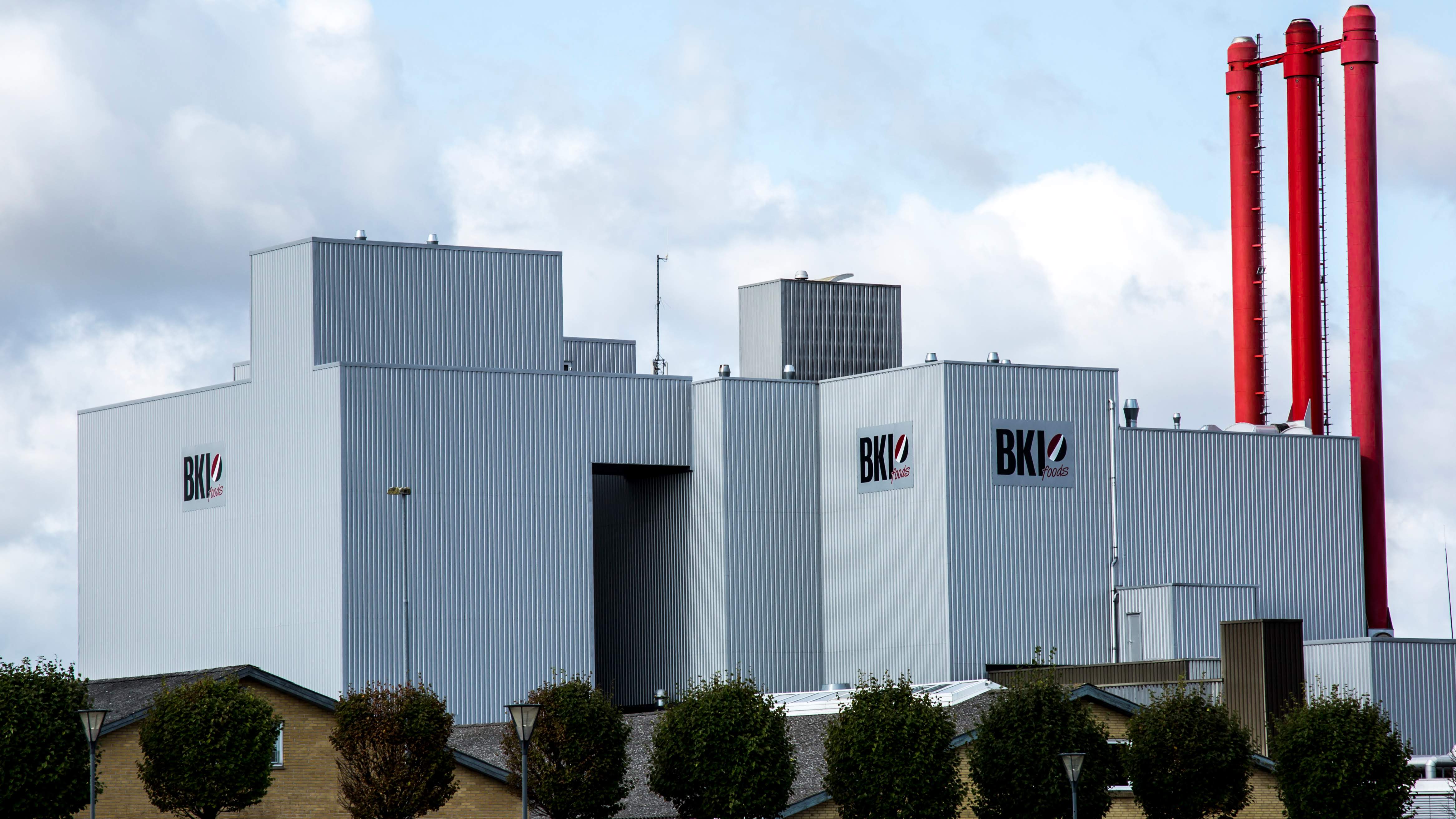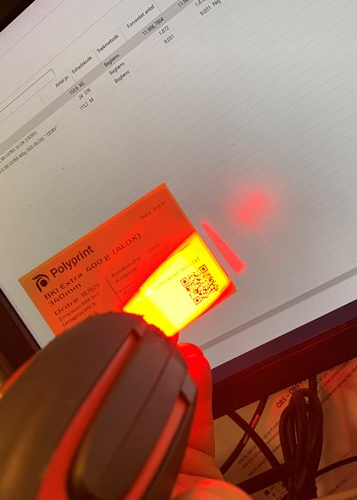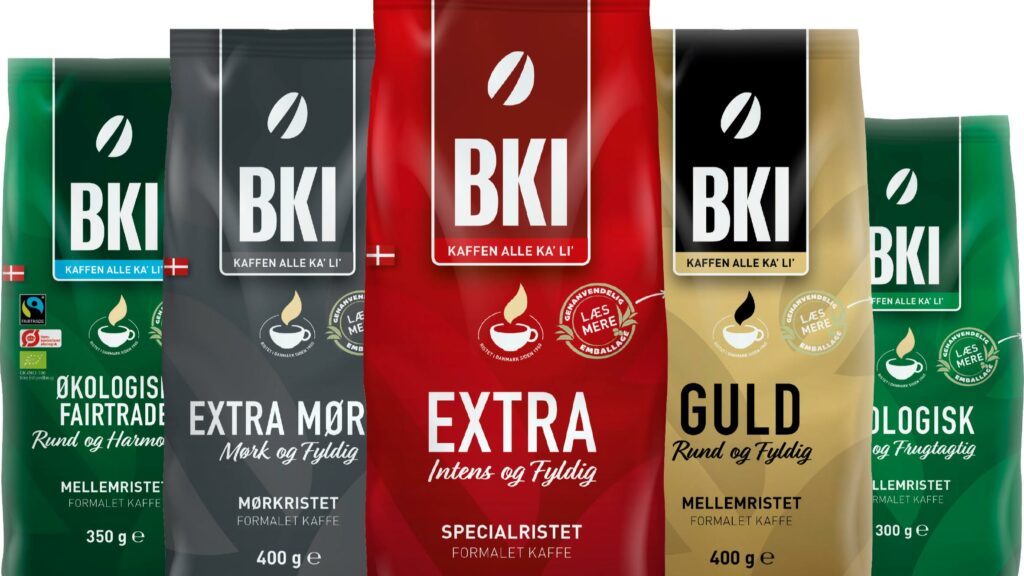Denmark’s largest producer of coffee, BKI Foods, has been on a 20-year long journey to digitize their manufacturing process and make it more environmentally friendly. Among the results are the invention of a reusable coffee bag, a new roasting process which reduces energy consumption by 20 pct. and a QR-system which eliminates failures in the packaging process by 95 pct.

The smell of roasted coffee fills your nostrils in Denmark’s largest coffee producer’s production halls.
While the smell and taste of the coffee may not have changed much, the production in these halls has undergone a huge change in the past 20 years. The owner, BKI Foods who is also a MADE member, has introduced new systems, procedures, and materials to make the production more environmentally friendly and digital.
Their journey began right here in the roastery. The coffee producer electrified the machinery in the 00’s and thereafter started collecting large amounts of data to make the process more efficient. And that paid off.
“We have used the roasting data to reduce our roasting loss with up to 0.5 pct. giving us a benefit equaling up to 0.5 million Euro per year,” BKI’s Factory Manager Ib Hauberg explains.
Since then, the company has moved on to digitize their entire production – including the packaging process. Originally, BKI’s operators manually checked if the correct components were used in the correct production lines. For example, whether the correct declarations were placed on each of the different consumer goods.

However, this manual process caused a number of failures. Therefore, BKI introduced a new system as part of their venture to digitize the production.
By using QR-codes on both production lines and components, the failure rate was reduced by 95 pct. In this system, the QR-codes are scanned and only if the scans check out as a correct match between components and production line, the packaging procedure can proceed.
The reuse of heat and coffee bags
BKI has also made special effort to implement ecofriendly changes in their production.
As MADE has reported earlier BKI has in collaboration with Polyprint invented a new coffee bag, which is almost 100 pct. reusable. The key is a new type of foil which has a 23 % reduced carbon footprint and reduces the use of plastic by 15 pct.
“BKI is the first coffee-producer to use metal free and recyclable bags for coffee packaging,” Ib Hauberg says and adds that the ambitions are even bigger:
“In the future, we will be working with thinner foils and in the end fully recyclable foils.”
Purchase manager at BKI Carsten Brøgger will explain more about the process of developing the new coffee bag at the event: “Adma: Experience BKI and BM Silo’s transformations”, which is described in the box to the right.
Virtual learning event with BKI
You can learn more about BKI’s transformation and get a virtual tour of their new production facilities at the event: “Adma: Experience BKI and BM Silo’s transformations” March 12. from 9:00 – 12:30.
Moreover, the event will provide information on how SMEs can get help making eco, digital and human-centered transformations from the EU program ADMA.
The event is free of charge.
The European Advanced Manufacturing Support Center
The center focuses on helping European SME’s become Factories of the Future. They offer a so-called ADMA-scan, which BKI Foods have also used in their venture towards a more digital and green production.
MADE is a partner in the ADMA project.
The ADMA-scan helps SME’s take stock of how far it is in different development areas – including the level of digitization and the level of sustainability – and where the largest development opportunities lie in the company.

Back in the roastery, we find that alongside the digitization a new roaster is put in place. It reduces the amount of energy demanded for roasting the coffee beans.
“We have started producing with less energy consumption during the roasting process, with a roaster that uses the heat from the roasting process to preheat the green beans. This reduces the energy consumption with about 20 pct.,” Ib Hauberg explains.
The transformation of BKI’s production has taken quite some effort, and Ib Hauberg has a piece of advice for others, hoping to achieve similar changes in their production:
“You have to give this kind of work top level priority. You have to find good partners in the different areas to develop new possibilities and ideas and you have to be willing to invest both time and money to succeed,” he explains and adds:
“Furthermore, you must have an organization that understand the meaning and methods you want to integrate.”
Watch Euronews’ interview with BKI:
The EU news agency Euronews has interviewed BKI and the European Advanced Manufacturing Support Center about how to make a production more digital and environmentally friendly. Watch the video below to get a look into the BKI factory and learn about how the support center helps SME’s make changes in their production similar to BKI: